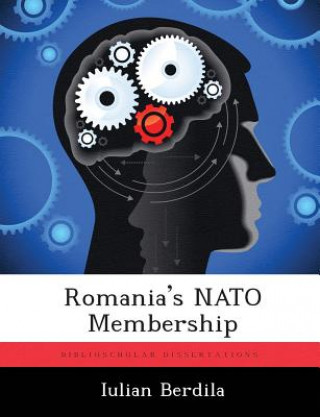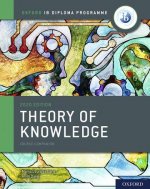
Code: 08243289
Romania's NATO Membership
by Iulian Berdila
Romania represents a reliable NATO member and an emergent democracy among the Eastern European countries. In 2004, Romania became a NATO member and will be integrated in the European Union in 2007. However, these achievements requ ... more
- Language:
 English
English - Binding: Paperback
- Number of pages: 52
Publisher: Biblioscholar, 2012
- More about this

You might also like
-

Initial Training of Surface Warfare Officers
60.75 € -

Smart and Simple Financial Strategies for Busy People
15.95 € -13 % -

I've Got Your Back
33.74 € -

Adventures in Infertility
20.86 € -2 % -

Free to Live, Free to Love
23 € -

Almost There
17.17 € -19 % -

Beatles Generation
18.81 € -19 % -

Moments That Matter
22.80 € -19 % -

Feeling Numb
12.88 € -

Take Your Time, Go Slowly
20.34 € -

Make Your Point!
25.05 € -

Chicago, Milwaukee, St. Paul & Pacific Railroad Company V. Goldhammer U.S. Supreme Court Transcript of Record with Supporting Pleadings
28.53 € -18 % -

Histoire Des Canadiens-Franc Ais. 1608-1880. Ouvrage Orne de Portraits Et de Plans.
37.02 € -

Five Court Rolls of Great Cressingham in the County of Norfolk. Translated, with an Introduction and Notes, by H. W. Chandler.
21.06 € -19 %
Give this book as a present today
- Order book and choose Gift Order.
- We will send you book gift voucher at once. You can give it out to anyone.
- Book will be send to donee, nothing more to care about.
More about Romania's NATO Membership
You get 150 loyalty points
 Book synopsis
Book synopsis
Romania represents a reliable NATO member and an emergent democracy among the Eastern European countries. In 2004, Romania became a NATO member and will be integrated in the European Union in 2007. However, these achievements required Romania to go through challenging reforms and to implement Western standards. NATO membership represented the first challenge after the fall of communism in the early 1990's. The process for NATO developed along three main dimensions: NATO's evolution after the Cold War, Romania's historical position toward Western integration and Romania's military reform after the Warsaw Pact dissolved. After 1990, NATO's own evolution represented the main process that influenced decisively Romania's development. NATO had to confront two policy issues: the relevance of the Alliance after the fall of the Soviet Union and the rationale for including former Eastern European countries. NATO's approach was to encourage former Warsaw Pact countries to cooperate within NATO's security forum to maintain stability in Eastern Europe. Moreover, the Eastern European countries could develop policies and plans for NATO membership. At the same time, the possible NATO enlargement could redefine NATO's role and preserve its relevancy. Romania's communist domination for almost five decades after World War II limited its opportunities for becoming a democratic country. Nicolae Ceausescu's dictatorship produced negative political, social and economic effects and influenced the West's perception of Romania. However, Romania started to review its servitude to the Soviet regime in the mid 1960's. The West responded positively but remained skeptical after Ceausescu's failure to improve social and economic conditions. After the 1989 Revolution, Romania struggled to create the conditions for NATO and EU membership. Political consensus and proper resource allocation remained the constant issues for the post-1989 Romanian governments. Besides addressing social issues to demons
 Book details
Book details
Book category Books in English Society & social sciences Education
60.75 €
- Full title: Romania's NATO Membership
- Author: Iulian Berdila
- Language:
 English
English - Binding: Paperback
- Number of pages: 52
- EAN: 9781288316953
- ISBN: 9781288316953
- ID: 08243289
- Publisher: Biblioscholar
- Weight: 109 g
- Dimensions: 246 × 189 × 3 mm
- Date of publishing: 19. November 2012
Trending among others
-

Cambridge IGCSE (R) & O Level Complete Chemistry: Student Book Fourth Edition
42.54 € -

Pearson Edexcel International GCSE (9-1) English Language B Student Book
51.13 € -

Oxford IB Diploma Programme: IB Economics Course Book
62.28 € -

Business Partner B1+ Workbook
16.87 € -4 % -

Speed and Accuracy: Multiplication
8.58 € -

Cambridge IGCSE (R) & O Level Complete Physics: Student Book Fourth Edition
38.76 € -

Speed and Accuracy: Division
8.58 € -

Read Write Inc. Phonics: Red Ditty Book Bag Books (Mixed Pack of 10)
75.58 € -

Spontaneous Activity In Education
29.04 € -

Dancing Heads
13.18 € -19 % -

Freiarbeitsmaterial für die Grundschule - Deutsch - Klasse 1/2
23.21 € -4 % -

Business Partner B1 Workbook
17.48 € -9 % -

Business Partner B2 Workbook
16.87 € -4 % -

Blue Book of Grammar and Punctuation: An Easy- to-Use Guide with Clear Rules, Real-World Examples , and Reproducible Quizzes, Twelfth Edition
15.13 € -29 % -

OET Preparation
9.71 € -

Grade 9-1 GCSE Maths AQA Revision Question Cards - Higher
10.22 € -4 % -

Oxford IB Diploma Programme: IB Theory of Knowledge Course Book
57.98 € -

Positive Discipline Tools for Teachers
15.64 € -19 % -

Embodied Teen
21.78 € -17 % -

Pearson Edexcel AS and A level Mathematics Statistics & Mechanics Year 1/AS Textbook + e-book
18.09 € -

(ISC) SSCP SG & SSCP Practice Test Kit, 3e
65.96 € -28 % -

Motivation and Reinforcement
46.43 € -

Imagine If...
10.93 € -24 % -

KS3 Maths 10-Minute Weekly Workouts - Year 7
8.07 € -9 % -

Vertical Academy
36.71 € -

OET Reading Subtest Preparation
12.78 € -7 % -

Oxford International Primary Maths Second Edition: Practice Book 1
12.47 € -

Vol 2 Blackletter Lettering Adventures
25.36 € -3 % -

AS & A Level Maths For Dummies
17.38 € -28 % -

CompTIA Security+ Review Guide - Exam SY0-601
24.84 € -25 % -

Forensic Linguistics Articles
15.43 € -

Practical Guide on Veterinary First Aid using Homeopathy
15.03 € -2 % -

Abolition of Man
18.71 € -2 % -

Human Landscapes from My Country
30.98 € -16 % -

Corrected Squares of The Book of Abramelin
536.98 € -

Hanbo Jutsu: Use of Hanbo, Cane and Walking Stick for Self Defense
11.34 € -

Reading Mind - A Cognitive Approach to Understanding How the Mind Reads
21.47 € -29 % -

Exam Prep for Microeconomics by Pindyck & Rubinfeld, 6th Ed.
40.80 € -

KS3 Maths 10-Minute Weekly Workouts - Year 8
8.07 € -9 % -

North Korea's Military Threat
25.87 € -

English Language & Literature WORKBOOK: York Notes for GCSE (9-1)
9.09 € -9 % -

Release Your Inner Drive
15.33 € -18 % -

Effect of Registration Errors on Tracking in a Networked Radar System
60.75 € -

Princeton Review SAT Premium Prep, 2021
45.81 € -

CEH v11 Certified Ethical Hacker Study Guide + Practice Tests Set
75.99 € -5 % -

10 Practice Tests for the SAT, 2021 Edition
33.95 € -

OCP Oracle Certified Professional Java SE 11 Programmer II Study Guide - Exam 1Z0-816 and Exam 1Z0-817
49.90 € -6 % -

Powerful Teaching: Unleash the Science of Learning
26.17 € -27 % -

Physics for You
51.95 €
Collection points Bratislava a 2642 dalších
Copyright ©2008-24 najlacnejsie-knihy.sk All rights reservedPrivacyCookies



 15549 collection points
15549 collection points Delivery 2.99 €
Delivery 2.99 € 02/210 210 99 (8-15.30h)
02/210 210 99 (8-15.30h)